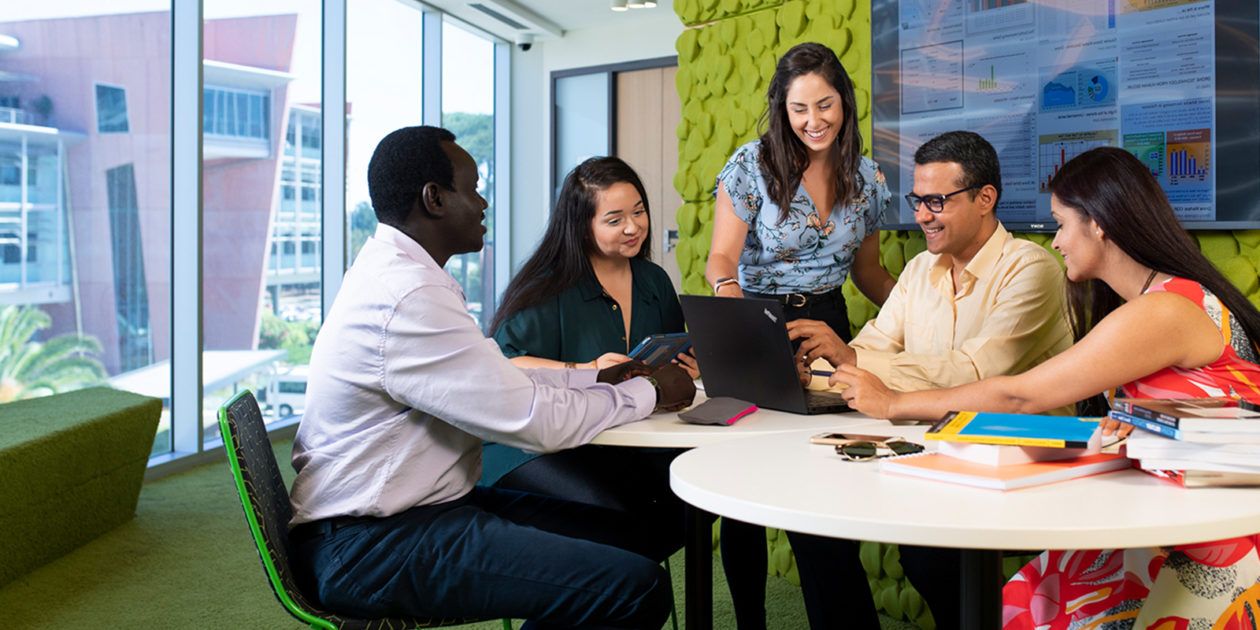Curtin MBA Information Evening
Take your first step towards a Curtin MBA by attending our MBA Information Evening.

Advance your understanding of resource management and business in this combination of the Master of Science and MBA.
This offering version is phasing out and no longer taking applications. You may be able to apply for a later version.

Take your first step towards a Curtin MBA by attending our MBA Information Evening.
With the advantage of combining a specialisation in either Energy Economics or Mineral Economics with the Curtin MBA, the 450-credit MSc(MEE)/MBA is becoming a popular choice for students with experience in the resources area wanting consolidation of their business and management skills.
Students are streamed according to their undergraduate background into non-technical/business or technical/business options.
DMEE offers one of only four Mineral and Energy Master of Science courses internationally and our student cohort represents 30 different countries. Originally established with the University’s Western Australian School of Mines (WASM) in the prominent mining town of Kalgoorlie (with which it maintains strong linkages), DMEE is now housed within the CGSB in Perth’s central business district. This complements the CGSB’s reputation as a leading provider of graduate management and leadership education with particular expertise in resources and energy markets.
Please refer to the handbook for additional course overview information.
The teaching programs are offered in a highly flexible way to cater for busy professionals endeavouring to balance work and study commitments, and for students working on a fly-in-fly-out basis.
While the courses have a strong theoretical base, they are characterised by their practical relevance. All teaching faculty have considerable experience in industry. Participants also benefit from the global popularity of the courses providing great opportunities for international perspectives to be shared and for long-term international contacts and networks to be established.
What you need in order to get into this course. There are different pathway options depending on your level of work and education experience.
Applicants require a bachelor degree from a recognised tertiary institution and at least three years subsequent, relevant work experience. Graduates from either the Curtin Graduate Certificate in Business or the Curtin Graduate Certificate in Mineral and Energy Economics will be considered qualified for entry. Entry to the course is competitive and applicants will be required to undertake an interview as the final stage of application assessment.
You will be required to submit supplementary information with your application.
Note: All applicants will need to submit a copy of their CV/Resume highlighting prior work experience and roles that they have held.
Curtin requires all applicants to demonstrate proficiency in English. Specific English requirements for this course are outlined in the IELTS table below.
You may demonstrate English proficiency using the following tests and qualifications.
Writing
6.0
Speaking
6.0
Reading
6.0
Listening
6.0
Overall band score
6.5
If you’re applying for the Master of Science (Mineral and Energy Economics), Master of Business Administration (MBA) course, you’ll need to include an employer recommendation form and a referee report with your application. All applicants will need to submit a copy of their CV/resume highlighting prior work experience and roles that they have held.
Entry to all CGSB courses is via competitive entry. For details about applying to these courses, please visit our How to Apply pages.
Please note that International student are still subject to the competitive entry requirements however must apply through the Curtin International Office.
Fee information is not available for this course at this time. Find estimated course fees.
The offering information on this website applies only to future students. Current students should refer to faculty handbooks for current or past course information.
The information on this page may be subject to change. In particular, Curtin University may change the content, method or location of delivery or tuition fees of courses.
While Curtin uses reasonable efforts to ensure that the information provided on this page is accurate and up to date, errors and omissions sometimes occur. Curtin makes no warranty, representation or undertaking (expressed or implied) nor does it assume any legal liability (direct or indirect) for the accuracy, completeness or usefulness of any information.
You might find your answer in our frequently asked questions.
Submit your question via our online form and we’ll get back to you.
1300 222 888
8:30am to 4:30pm weekdays (Tuesday from 9:30am)
You’ll find Curtin Connect in building 102 on the Perth campus.
8:30am to 4:30pm weekdays (Tuesday from 9:30am)
For invitations to events, study tips and info on navigating your way to uni, join the Curtin community.
Look out for emails from us in your inbox.